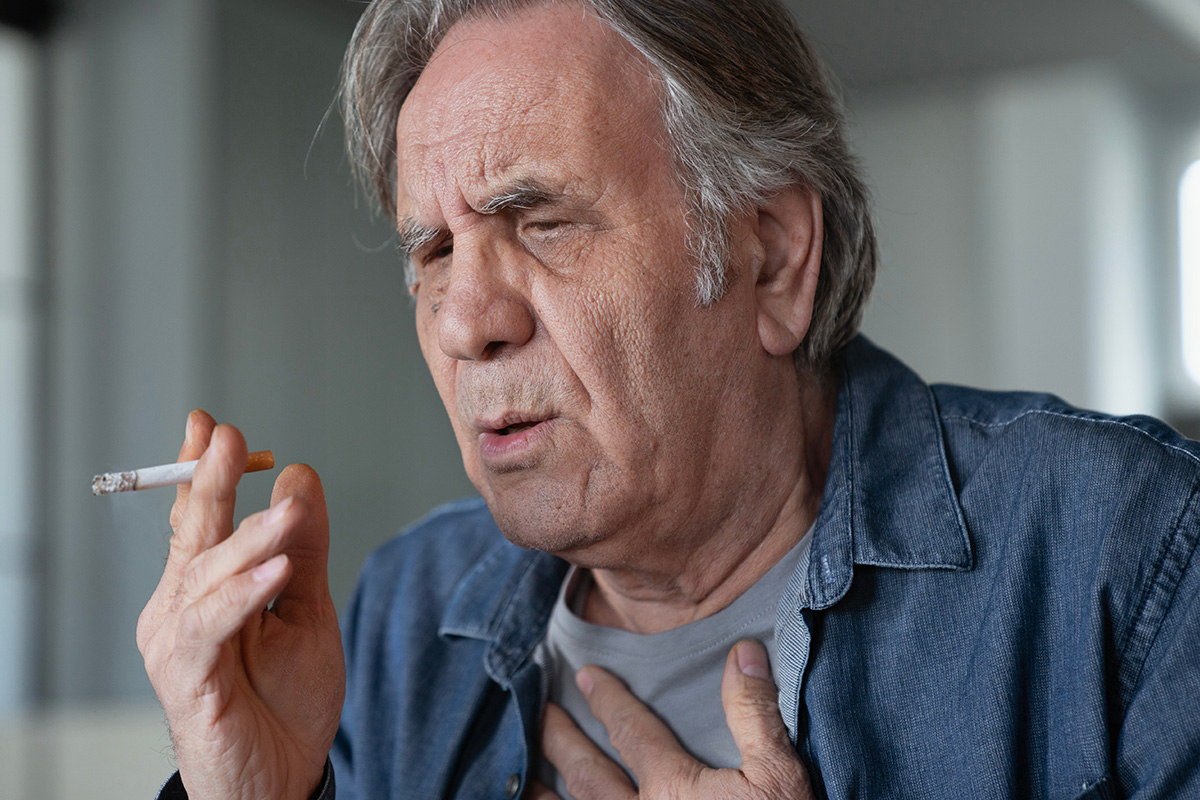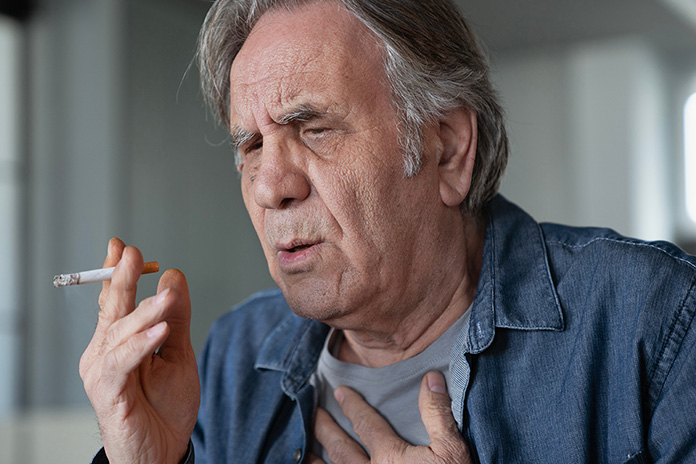
When you hear the term COPD (an acronym for Chronic Obstructive Pulmonary Disease), you may think that it’s one single illness. However, COPD is a blanket term for a number of lung disorders that affect your ability to breathe fully. These illnesses include:
–Emphysema, a condition in which the tiny air sacs in your lungs, called alveoli, become enlarged, injured and lose their flexibility. When these alveoli are damaged, your lungs become less able to bring air in and move air out. This translates into an inability to absorb enough oxygen, which causes shortness of breath.
-A kind of asthma that’s associated with continued and frequent attacks; a condition called refractory asthma. It causes poor lung function and unfortunately, it doesn’t respond well to standard asthma medications.
–Chronic bronchitis is an inflammation of your bronchi, which are the main airways into your lungs. When bronchitis becomes chronic, it causes the loss of the tiny hair-like fibers, called cilia, in your bronchi. These cilia are important because they work to move mucous out of your lungs. With the loss of bronchial cilia, clearing your lungs becomes more difficult, which can cause coughing, irritation and increased mucous production.
Many people in the early stages of COPD may not experience any symptoms. However, once they occur, the symptoms usually become worse over time. Symptoms of COPD may include:
- Shortness of breath, which is often made worse by activity
- A chronic cough
- Wheezing or a whistling sound when you breathe
- A feeling of chest tightness or pressure
- Decreased immunity, manifesting as frequent colds or flu
- Poor energy or feeling tired all the time
- Weight loss
- Swelling in your calves, ankles or feet
- A bluish tinge to your fingernails or lips
A diagnosis of COPD also comes with an increased risk for complications for other conditions. This includes heart disease, lung cancer and a type of elevated blood pressure in the arteries of your lungs, called pulmonary hypertension. Furthermore, decreased immunity associated with COPD also makes it more likely to develop pneumonia and other respiratory infections.
While many illnesses have a number of underlying causes, with COPD, the single most common cause is repeated exposure to lung irritants. The most frequent of these is exposure to tobacco smoke, through smoking cigarettes, a pipe, vaping or extensive exposure to second-hand smoke. Second to tobacco smoke is exposure to environmental pollutants, such as chemicals and dust. Furthermore, if you have asthma or early COPD, exposure to lung irritants not only aggravates your symptoms, but also accelerates the disease progression. Because COPD is the result of chronic exposure to irritants, it tends to affect people who are older than 40, and gets worse with age. For a small percentage of COPD sufferers, their disease is caused by a genetic mutation in which the lack of the alpha 1 antitrypsin protein increases their risk of developing the disease.
Treatments for COPD
Traditional treatments for COPD include medications, such as bronchodilators, which help open up your airways, inflammation-reducing corticosteroids and if a bacterial infection is present, antibiotics. Your doctor will probably also recommend preventative measures, such as getting a flu shot every year and getting a pneumonia vaccination. Sometimes treatment for COPD may involve something called pulmonary rehabilitation, which can include exercises to strengthen your lungs and accessory muscles, ways to manage your COPD and lifestyle tweaks. As COPD becomes more advanced, oxygen therapy may also be used to help improve your quality of life by reducing shortness of breath and oxygen deficit.
The unfortunate truth about COPD is that it’s a chronic illness that has no cure, and management requires the use of long-term medications. However, many people with COPD have turned to using acupuncture as a way to complement their medical regimen and to manage their symptoms and flare ups. Researchers have found that acupuncture may indeed be helpful. A review of several research studies on COPD concluded that for those participants who received acupuncture, it helped make standard medical treatments more effective, improved lung function, reduced shortness of breath and improved the quality of life.
Acupuncture can be used as a stand-alone treatment for COPD, however in more advanced cases, it is usually used in conjunction with medications and/or pulmonary rehabilitation. Acupuncture works to reduce inflammation, boost immunity and improve lung function, which helps to control or reduce flare-ups.
Other research indicates that Chinese herbal medicine can help people with COPD. Practitioners of Chinese medicine are trained and experienced in prescribing herbs, which are combined into formulas specific to your individual needs. Scientists have discovered that these herbal formulas can be an effective way to control coughing, and reduce mucous production, chest tightness, wheezing and the inflammation associated with COPD.
In addition, your acupuncture practitioner may incorporate Chinese food therapy into your treatment plan. They can help you choose foods that decrease mucous production, improve your immune function and decrease inflammation. They can also suggest lifestyle changes, such as limiting your exposure to irritating pollutants, breathing exercises, gentle physical activity and staying well-hydrated as a way to control your symptoms. And if necessary, they can also work with you to help you quit smoking, as acupuncture can be a very effective tool in reducing the frequency and intensity of tobacco cravings.
Some patients feel hopeless after a diagnosis of COPD, and that’s natural. However, it’s important to know that there are a number of ways to help you take control of your symptoms and decrease flare-ups. One of those ways is through the use of Chinese medicine, which can be a safe, effective and drug-free option. If you’d like more information about acupuncture as a treatment for your COPD, please contact me.

Cindy Chamberlain is an acupuncturist in Overland Park, KS and the founder of Eastern Healing Solutions, LLC. She is licensed in Kansas and Missouri and has been practicing traditional Chinese medicine since 1996.


